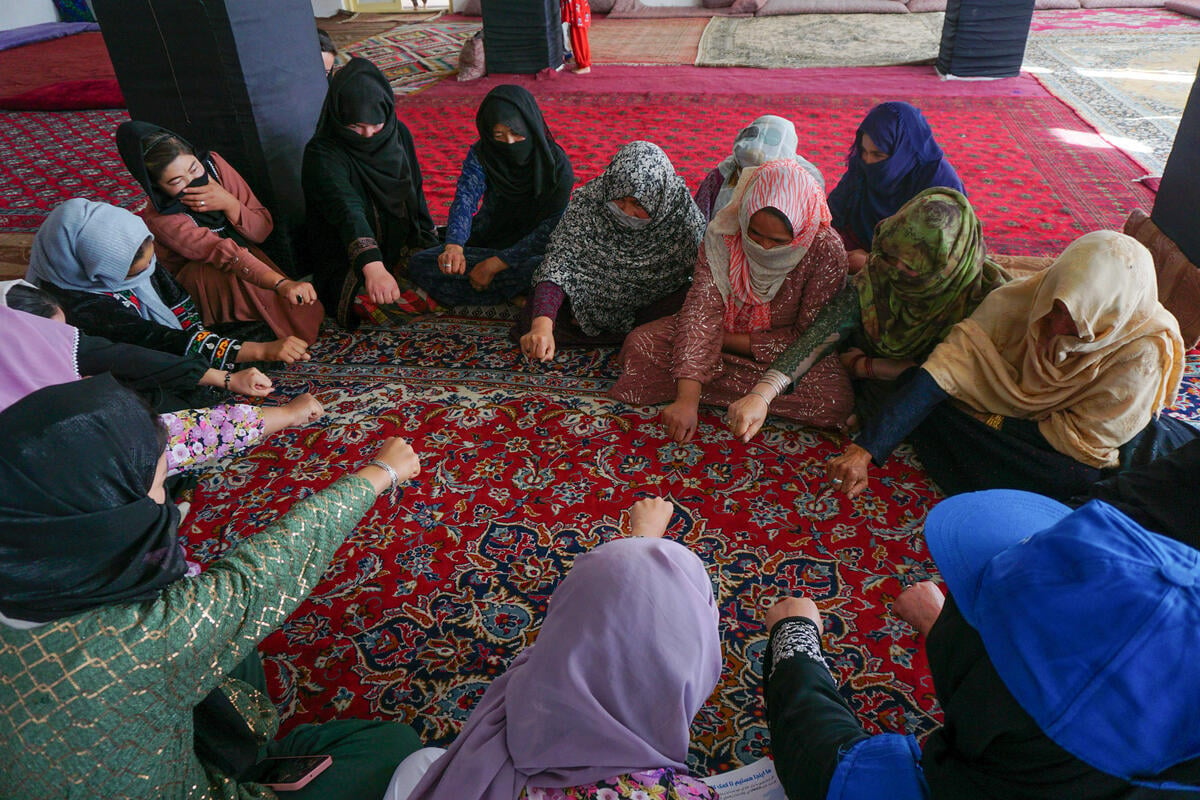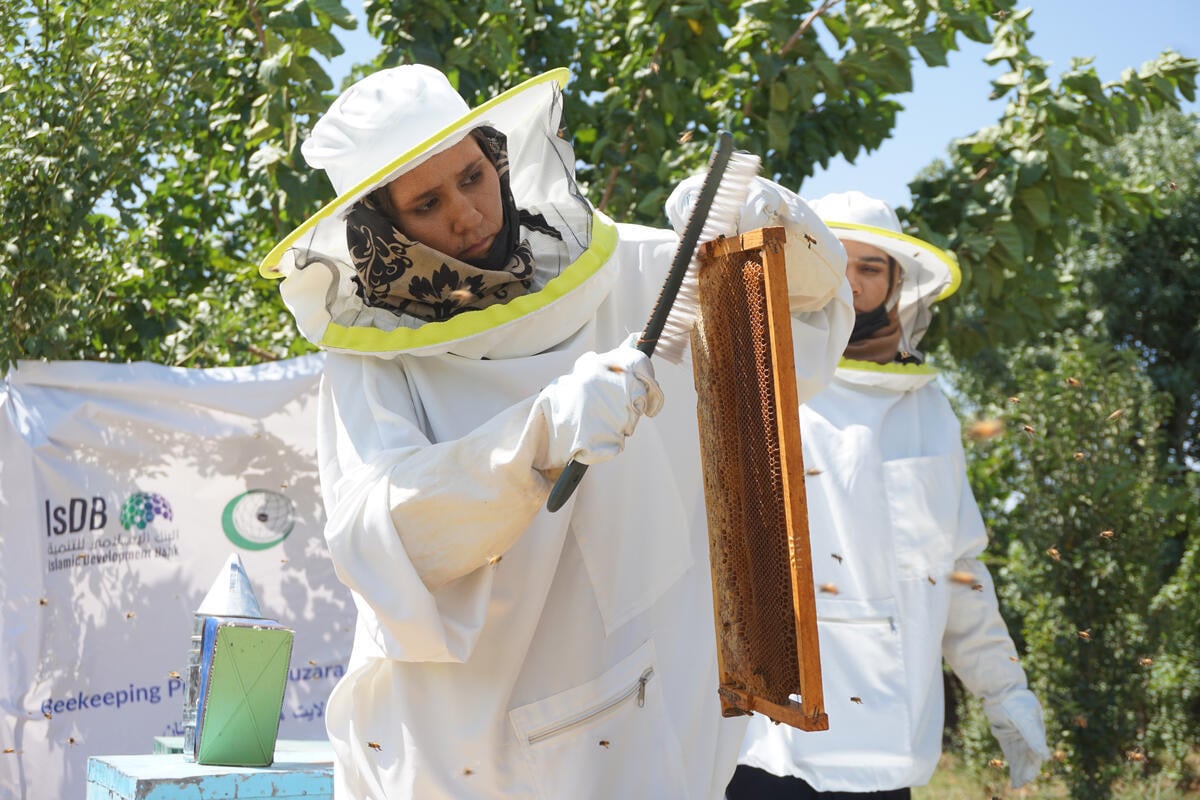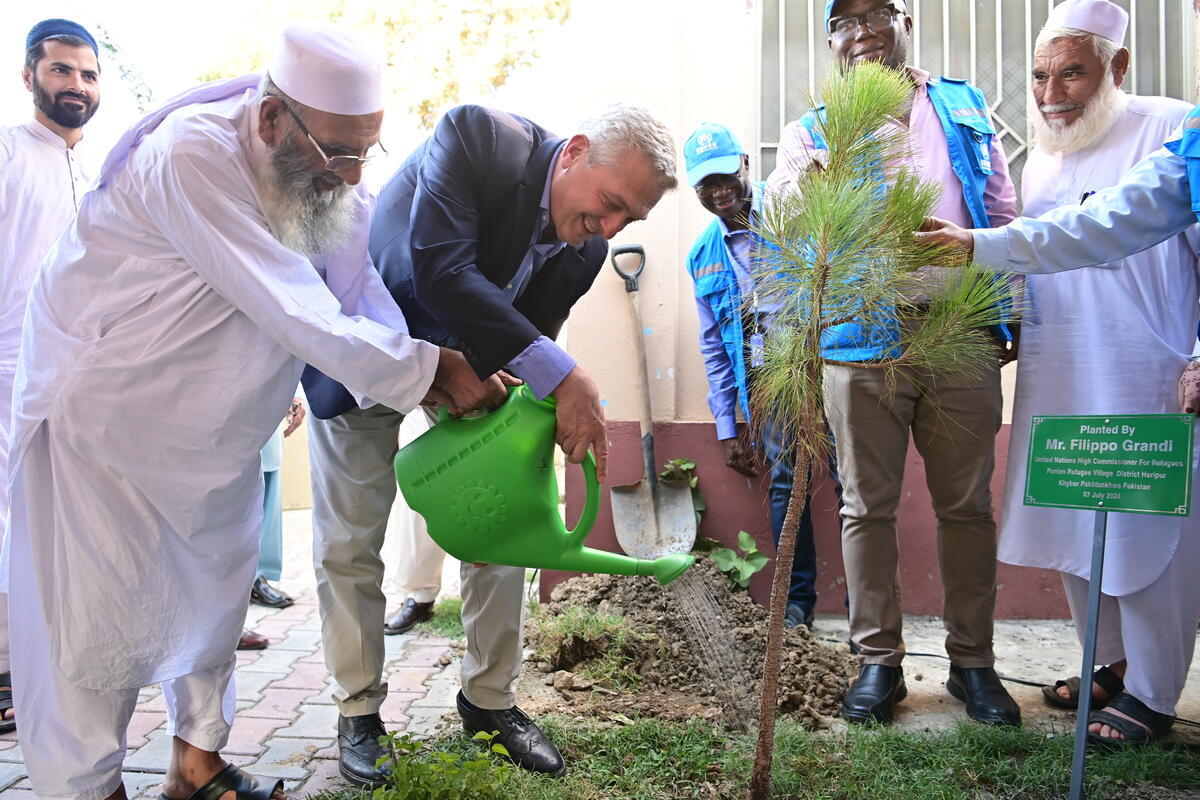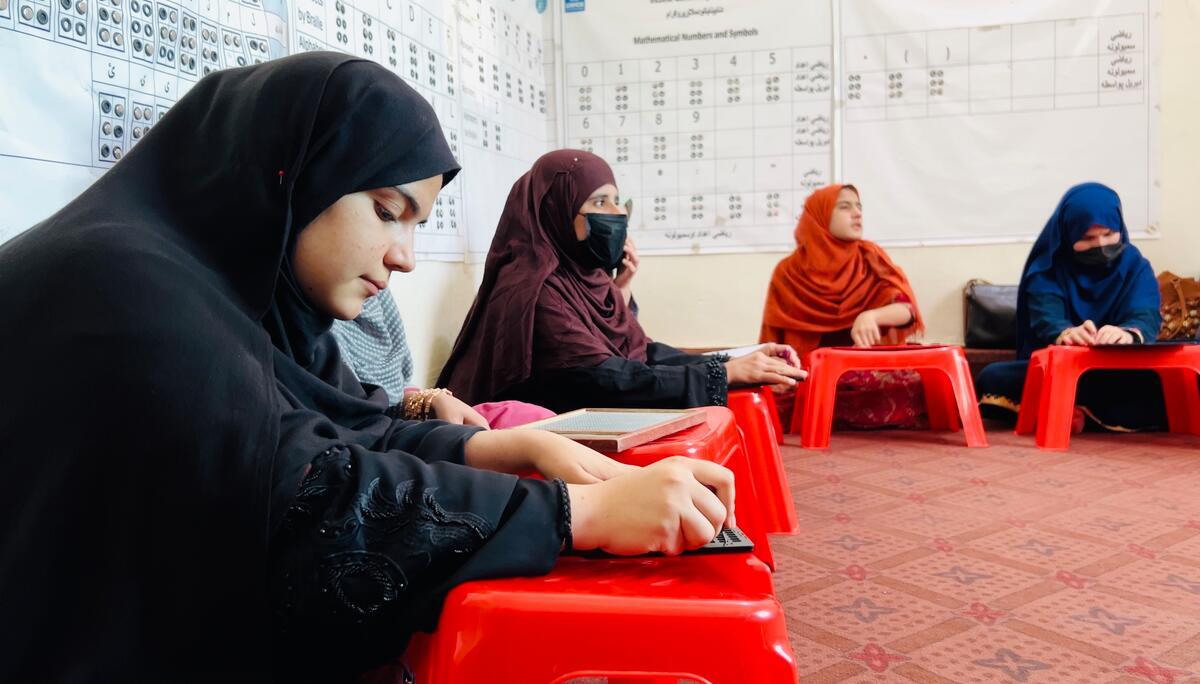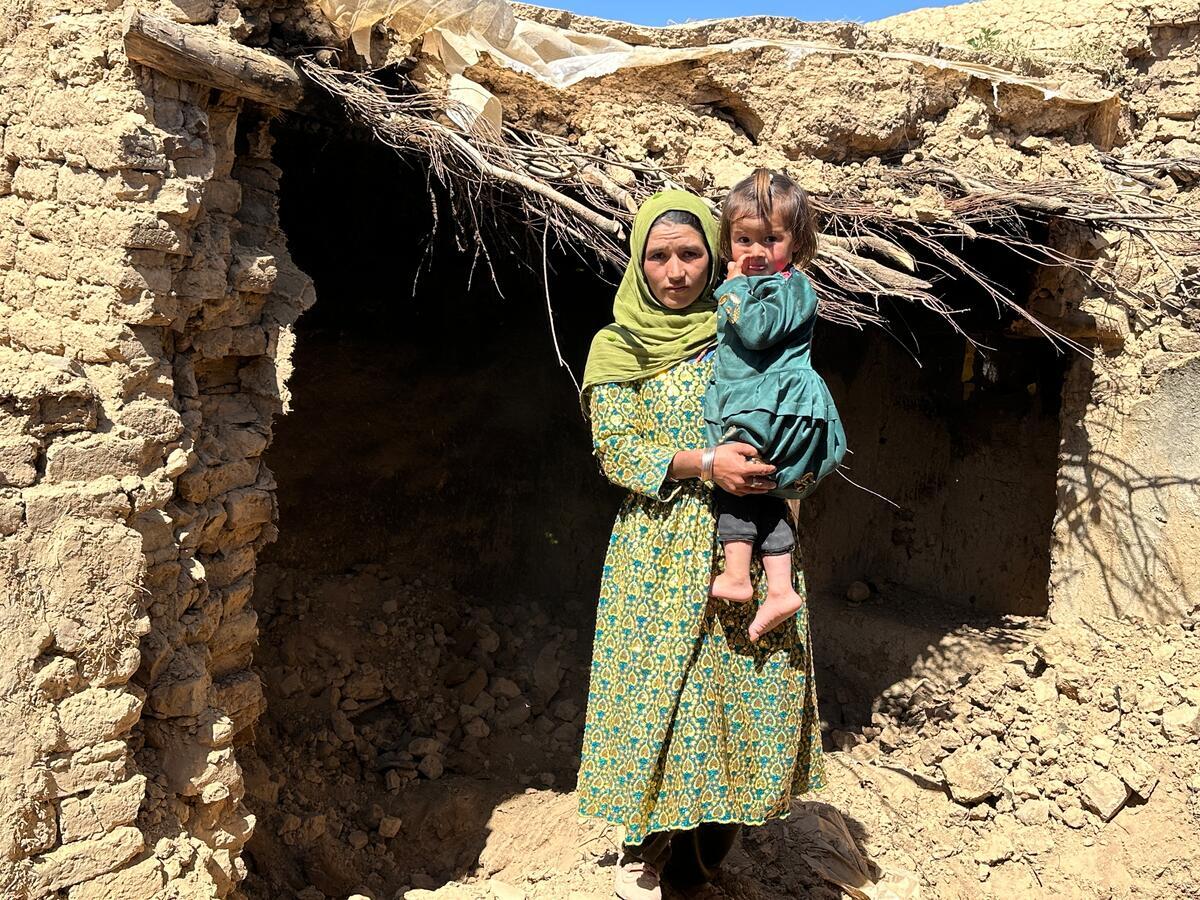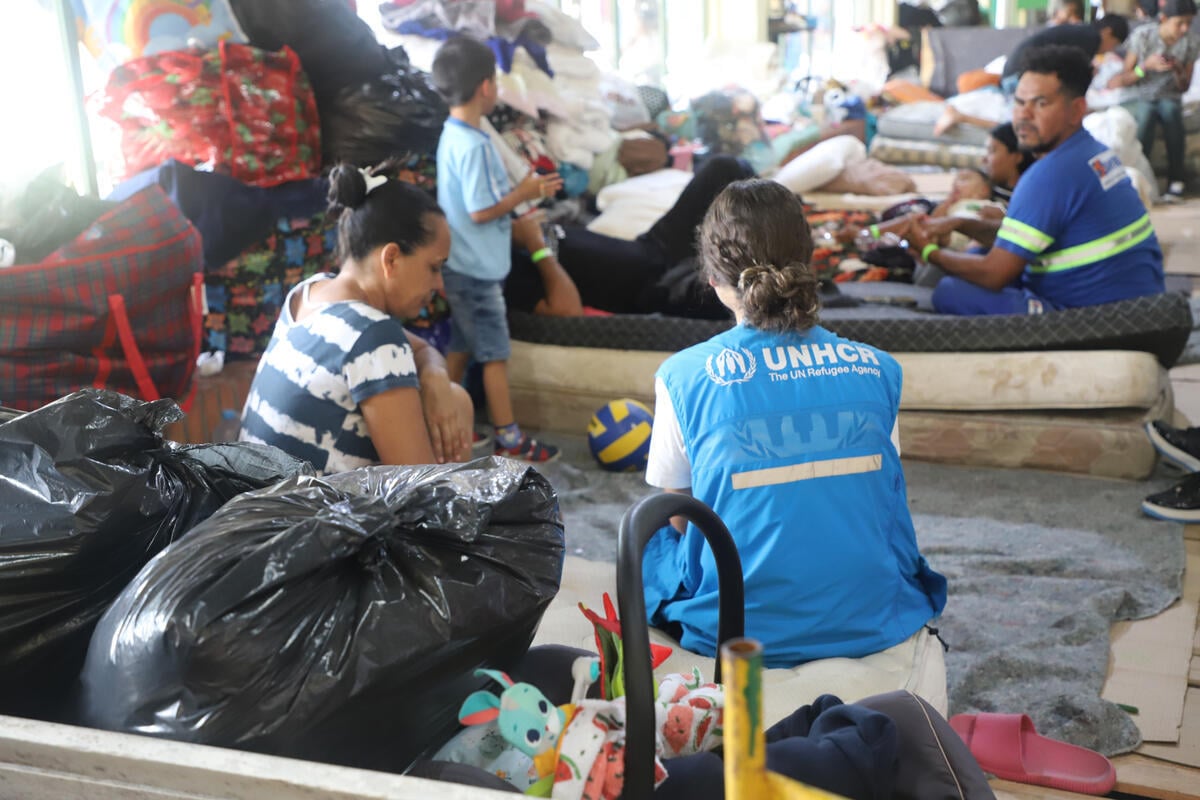Pakistan: desperate Afghans continue to arrive
Pakistan: desperate Afghans continue to arrive
Thousands of desperate Afghans fleeing the escalating war and serious drought in their homeland continue to arrive in Pakistan. More than 170,000 new arrivals have been recorded since the influx started last September. The Afghans are mainly entering Pakistan through unauthorised routes since crossings via established frontier posts have virtually halted since late January, when Pakistan imposed tighter controls on its border. Because of the new border controls, UNHCR has not been able to effectively monitor and verify those in need of protection and assistance. The largest number of new arrivals this year has been observed in Pakistan's southern province of Baluchistan, where thousands of families have reportedly crossed from Afghanistan since late January, with 30 families arriving daily in just one border district. UNHCR's appeals for access to verify the new arrivals and a suitable site to relocate those found to be in urgent need of assistance have been turned down by the Pakistani authorities.
UNHCR is worried about the plight of thousands of Afghans still camped out in the open in Jalozai, near Peshawar in north-west Pakistan. In late January, regional Pakistani authorities suspended UNHCR's verification process, effectively blocking the transfer of the vulnerable from Jalozai. The conditions at the makeshift settlement are deteriorating rapidly, further pushing its estimated 80,000 inhabitants into the depths of misery and despair. Weakened by hunger and diseases, they need urgent help. Jalozai has no adequate shelter, sanitary facilities, health and water supply. With the upcoming onset of the hot season, the squalid conditions could pose serious health hazards and threaten both the Afghans and local residents.
UNHCR has allocated $4 million to assist the new arrivals in Pakistan. UNHCR and its partners in Jalozai have set-up three health clinics and immunised 11,340 children against measles. Water is trucked daily and water tanks, with the capacity of 3,000 litres, have been installed. Water supply to the camp has been doubled from 120,000 to 240,000 litres a day. And 560 latrines have been built.
UNHCR and its partners have continuously improved the health, nutrition, sanitation and water services at the New Shamshatoo refugee camp, which now hosts more than 60,000 new arrivals. Some 7,000 tents, 2,190 tarpaulins, 21,500 quilts, 3,895 plastic sheets, 8,456 kitchen sets, 6,180 cooking stoves and 11,700 water cans have been distributed.

